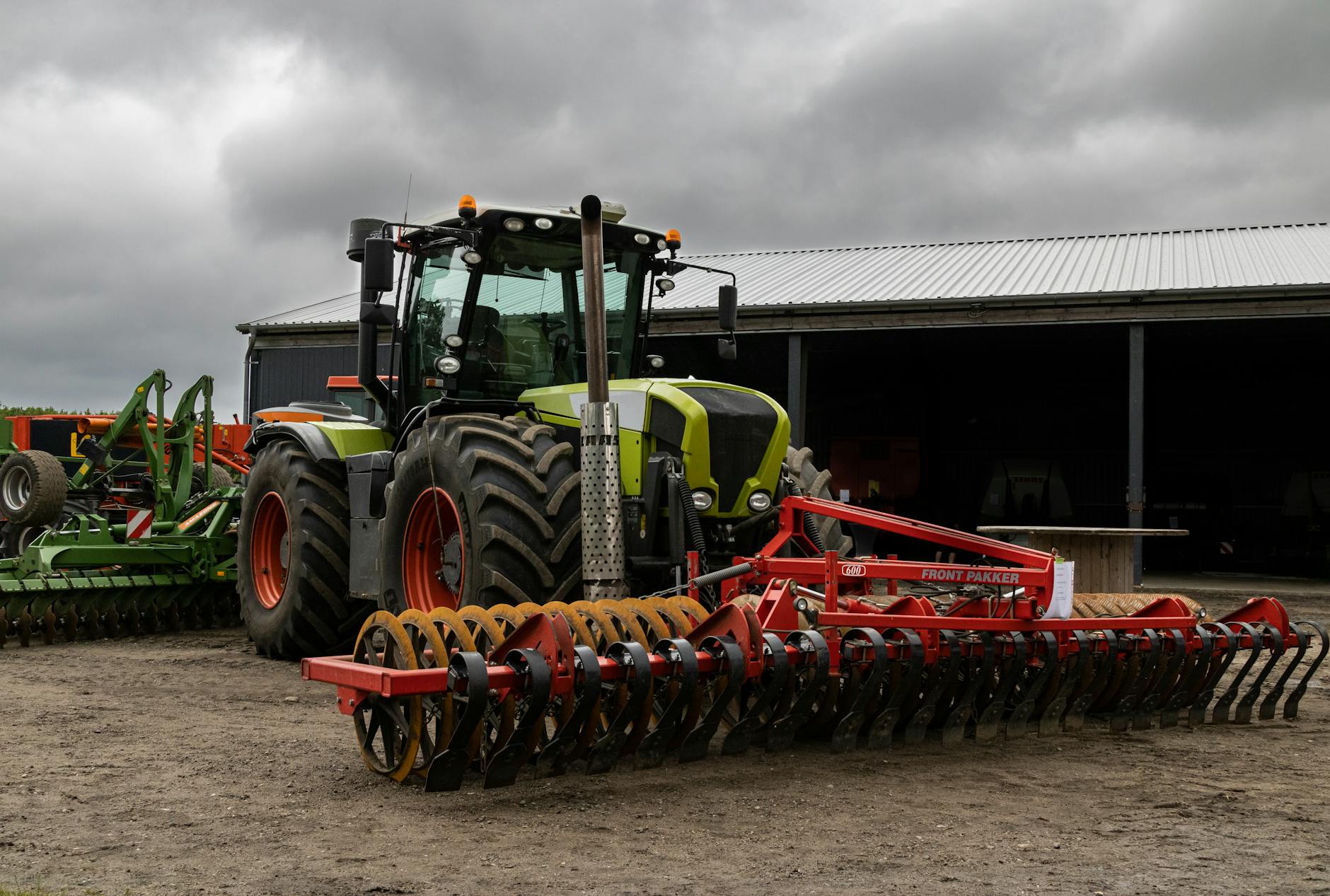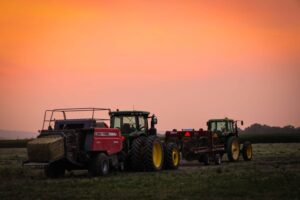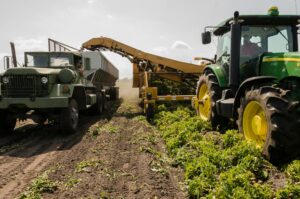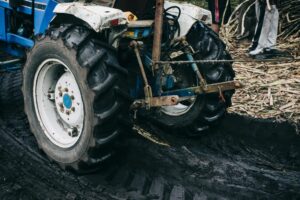Agricultural tractor tyres play a crucial role in farming operations, affecting traction, fuel efficiency, soil compaction, and overall performance. Whether you need tyres for plowing, harvesting, or general fieldwork, choosing the right type can enhance productivity and reduce operational costs.
In this guide, we’ll cover: ✅ Types of agricultural tractor tyres ✅ Key factors to consider when selecting tyres ✅ Popular tyre brands for farming ✅ Maintenance tips to extend tyre life
Choosing the Agricultural Tractor Tyres
1. Types of Agricultural Tractor Tyres
Tractor tyres are classified based on their tread pattern, application, and structure. The main types include:
🚜 R1 – Agricultural Lug Tyres (General Farm Work)
✔️ Best for: Fieldwork, plowing, and tilling ✔️ Features: Deep lugs for excellent traction on loose soil, mud, and uneven terrain ✔️ Common Use: Row-crop farming, heavy-duty agricultural tasks
🔹 Pros: Superior grip on soft and wet fields 🔹 Cons: Rough ride on paved roads, increased soil compaction
🌱 R1W – Deep-Tread Agricultural Tyres (Wet & Muddy Conditions)
✔️ Best for: Wet, sticky, and deep-mud farming conditions ✔️ Features: Deeper tread than R1 tyres for extra traction ✔️ Common Use: Rice fields, wetland farming, and wet soil conditions
🔹 Pros: Enhanced grip in deep mud and wet fields 🔹 Cons: Higher cost than standard R1 tyres
🛣️ R2 – Rice and Cane Tyres (Extremely Wet Conditions)
✔️ Best for: Deep mud, flooded fields, and sugarcane farming ✔️ Features: Super-deep treads (twice as deep as R1) ✔️ Common Use: Rice paddies, sugarcane fields
🔹 Pros: Maximum traction in extreme wet conditions 🔹 Cons: Limited use outside deep-mud farming
🚜 R3 – Turf & Lawn Tyres (Minimal Soil Damage)
✔️ Best for: Grass, lawns, and landscaping ✔️ Features: Wide, shallow tread to reduce soil disturbance ✔️ Common Use: Golf courses, gardens, parks, and vineyards
🔹 Pros: Low impact on delicate surfaces 🔹 Cons: Poor grip on mud and wet soil
🏗️ R4 – Industrial & Construction Tyres (Hard Surfaces & Mixed Use)
✔️ Best for: Hard surfaces, gravel, and light-duty farming ✔️ Features: Shallower lugs than R1, but stronger sidewalls ✔️ Common Use: Construction, landscaping, industrial work
🔹 Pros: More durable on roads and hard surfaces 🔹 Cons: Less grip in deep mud or soft soil
2. Key Factors to Consider When Choosing Tractor Tyres
🔍 1. Terrain & Farming Conditions
- Soft soil & muddy fields? → R1 or R1W tyres
- Hard soil & rocky terrain? → R4 tyres
- Lawn or turf work? → R3 tyres
📏 2. Tyre Size & Load Capacity
- Always check the sidewall markings (e.g., 18.4R38) for size, width, and rim diameter.
- Ensure the tyres can support the weight of your tractor and implements.
📉 3. Radial vs. Bias-Ply Tyres
🔹 Radial Tyres ✔️ Provide better traction and fuel efficiency ✔️ Lower soil compaction ✔️ More comfortable ride
🔹 Bias-Ply Tyres ✔️ More affordable than radial tyres ✔️ Stronger sidewalls for heavy loads ✔️ Suitable for rough terrain
🔹 Which one to choose?
- For high-horsepower tractors & long working hours → Radial tyres
- For rough terrain & budget-conscious farmers → Bias-ply tyres
💰 4. Budget & Tyre Longevity
- High-quality tyres last longer and reduce fuel costs.
- Cheap tyres wear faster and may increase soil compaction.
- Consider the total cost of ownership, not just the initial price.
3. Top Agricultural Tractor Tyre Brands
🔝 1. Michelin
✔️ Best for: Premium quality radial tyres with long lifespan ✔️ Popular Models: Michelin Agribib, Michelin MachXBib
🔝 2. Firestone
✔️ Best for: Heavy-duty fieldwork and durability ✔️ Popular Models: Firestone Radial 9000, Firestone Performer EVO
🔝 3. Goodyear (Titan International)
✔️ Best for: Affordable and reliable bias-ply tyres ✔️ Popular Models: Goodyear Optitrac, Goodyear UltraTorque
🔝 4. BKT (Balkrishna Tyres)
✔️ Best for: Budget-friendly radial and bias-ply tyres ✔️ Popular Models: BKT Agrimax, BKT TR135
🔝 5. Trelleborg
✔️ Best for: Low soil compaction and high load-bearing tyres ✔️ Popular Models: Trelleborg TM900, Trelleborg TM800
🔹 Tip: Choose a tyre brand based on your budget, soil conditions, and expected lifespan.
4. Agricultural Tyre Maintenance Tips
✔️ Check Tyre Pressure Regularly
- Under-inflated tyres = More fuel consumption & soil damage
- Over-inflated tyres = Reduced traction & uneven wear 🔹 Tip: Follow the manufacturer’s recommended pressure settings.
✔️ Rotate & Align Tyres
- Ensures even wear and longer tyre life
- Reduces stress on the tractor’s drivetrain
✔️ Inspect for Damage
- Look for cracks, cuts, or uneven wear patterns
- Replace damaged tyres before they fail in the field
✔️ Store Tyres Properly
- Keep tyres out of direct sunlight to prevent rubber deterioration
- Store in a cool, dry place when not in use
🔹 Tip: A well-maintained tyre can last 5–10 years, saving you thousands of dollars in replacement costs.
Final Thoughts: Choosing the Best Tractor Tyres
🚜 For heavy-duty fieldwork & row-crop farming? → R1 or R1W tyres 🌾 For deep mud & wet conditions? → R2 tyres 🌱 For lawns, vineyards & landscaping? → R3 turf tyres 🏗️ For hard surfaces & industrial work? → R4 tyres
💡 Radial tyres offer better performance & fuel efficiency but cost more. 💰 Bias-ply tyres are cheaper but wear out faster in demanding conditions.
🔹 Best Brands: Michelin, Firestone, Goodyear, BKT, Trelleborg
By selecting the right tyres and maintaining them properly, you can maximize traction, reduce soil compaction, and improve fuel efficiency, leading to better farming productivity.
👉 Need help selecting the best tyres for your tractor? Drop a comment below! 🚜



